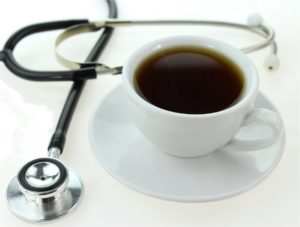If coffee keeps you going, then this one is for you. Mind though, moderation is the key.
 New Delhi: A review published in the British Medical Journal has found that three to four cups of coffee a day can have beneficial effects. In fact in nonpregnant people or women at increased risk of fracture – of which post menopausal osteoporotic women would form a large cohort – it could actually be tried as an intervention. “Coffee consumption seems generally safe within usual levels of intake, with summary estimates indicating largest risk reduction for various health outcomes at three to four cups a day, and more likely to benefit health than harm. Robust randomised controlled trials are needed to understand whether the observed associations are causal. Importantly, outside of pregnancy, existing evidence suggests that coffee could be tested as an intervention without significant risk of causing harm. Women at increased risk of fracture should possibly be excluded,” the study concluded. It was conducted by researchers from the Faculty of Medicine, University of Southampton and the Medical Research Council University of Edinburgh Centre for Inflammation Research
New Delhi: A review published in the British Medical Journal has found that three to four cups of coffee a day can have beneficial effects. In fact in nonpregnant people or women at increased risk of fracture – of which post menopausal osteoporotic women would form a large cohort – it could actually be tried as an intervention. “Coffee consumption seems generally safe within usual levels of intake, with summary estimates indicating largest risk reduction for various health outcomes at three to four cups a day, and more likely to benefit health than harm. Robust randomised controlled trials are needed to understand whether the observed associations are causal. Importantly, outside of pregnancy, existing evidence suggests that coffee could be tested as an intervention without significant risk of causing harm. Women at increased risk of fracture should possibly be excluded,” the study concluded. It was conducted by researchers from the Faculty of Medicine, University of Southampton and the Medical Research Council University of Edinburgh Centre for Inflammation Research
Largest risk reduction for various health outcomes at three to four cups a day, and more likely to benefit health than harm
The study that reviewed a range of published studies on the health effects of coffee – 201 meta-analyses of observational research with 67 unique health outcomes and 17 meta-analyses of interventional research with nine unique outcomes – came to a favourable conclusion overall but the rider that randomised controlled trials are needed to understand the interaction of coffee with the human physiology fully is a significant one. Studies on coffee in the past have had mixed outcomes but what is interesting is the fact that a person’s genes and the kind of microorganisms s/he has in the gut could change the way they react to coffee by changing the character of coffee metabolites.
Coffee is a complex compound – roasted coffee is a mixture of over 1000 bioactive compounds, some with potentially therapeutic antioxidant, anti-inflammatory, antifibrotic, or anticancer effects. Key active compounds include caffeine, chlorogenic acids, and the diterpenes, cafestol and kahweol. Some of the recorded effects of coffee that the review took note of include – coffee consumption was consistently associated with a lower risk of mortality from all causes of cardiovascular disease, coronary heart disease, and stroke, a 10% less chance of mortality from any cause. In non-smokers there was a 2% lower risk of mortality from cancer for exposure of one extra cup a day (0.98, 0.96 to 1.00). For smokers, the article provided results only from a non-linear analysis, and the risk. Coffee consumption was consistently associated with a lower risk of Parkinson’s disease, even after adjustment for smoking.


